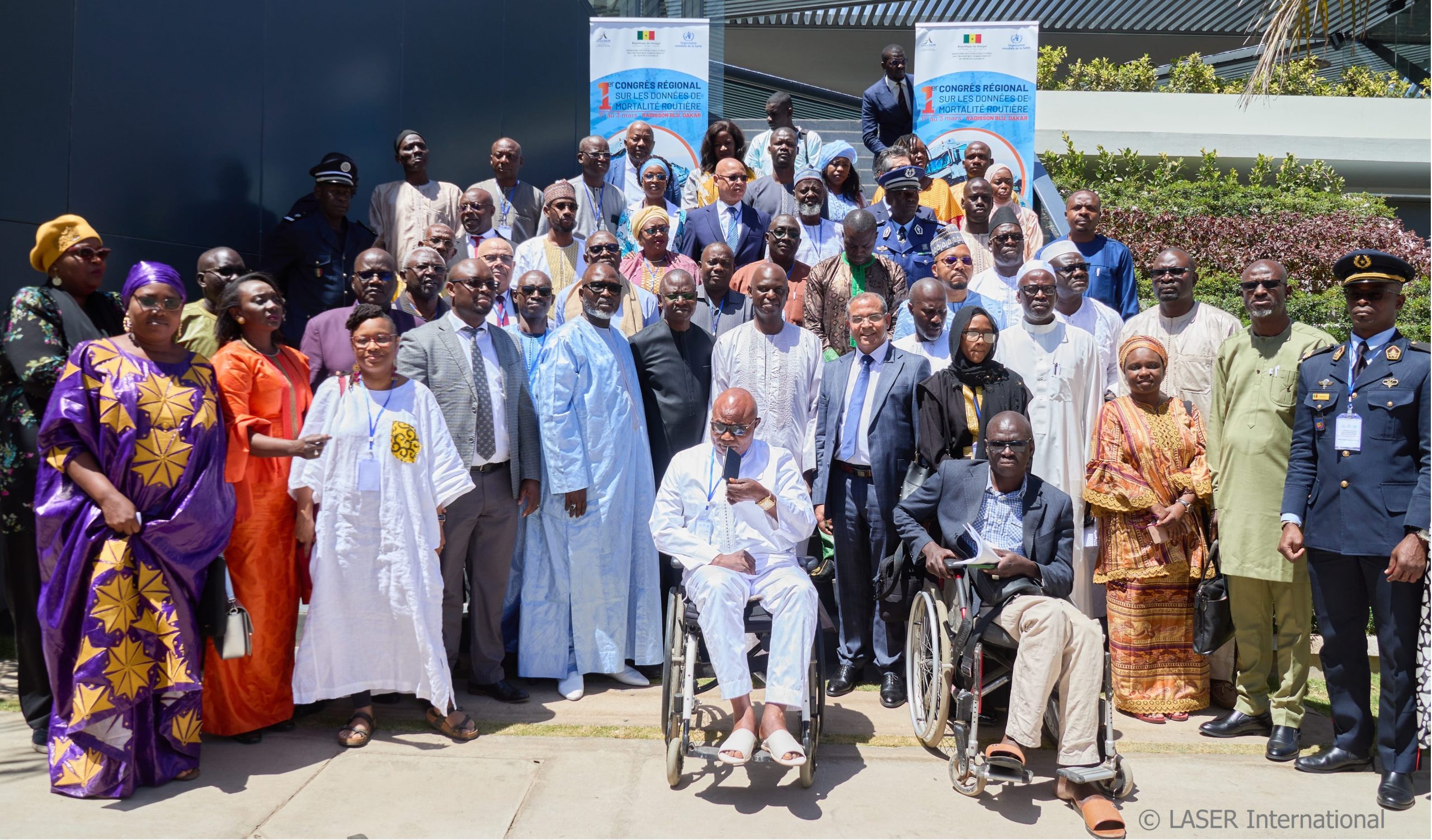
In June 2023, Senegal became the twelfth country to ratify the African Road Safety Charter, meaning that only three more ratifications are needed to make it legally binding and enforceable across Africa. The African Road Safety Charter, an initiative of the African Union (AU), aims to promote road safety and reduce road traffic injuries and fatalities across the African continent.
The ratification of this crucial Charter in Senegal was made possible through the dedicated advocacy efforts of LASER International, an Alliance member NGO. Through strategic advocacy and collaboration with key stakeholders, LASER International successfully influenced the ratification process, leading to significant progress in road safety measures within the continent. In an interview with the Executive Director of LASER International, Awa Sarr, we explored the journey and accomplishments of their advocacy.
How LASER International advocated for the Charter
LASER International commenced their advocacy in 2021 by communicating with the Minister of Transport at the time why ratification would improve road safety in the region. Following the High-level Meeting on Road Safety organized by AU Commission and the United Nations Economic Commission for Africa (UNECA) in Addis Ababa, Ethiopia on 20 May 2021, LASER International began working closely with the Ministry of Transport towards ratifying the Charter. They had already established a strong connection with the Ministry during the Third Global Ministerial Conference on Road Safety in Stockholm Sweden in 2020. LASER was granted official status as a Senegalese delegation member, providing opportunities to engage in high-level meetings with global stakeholders during the ministerial meeting in Stockholm.
As momentum grew, the creation of the Road Safety Agency in Senegal in 2022 served as a catalyst for further advocacy efforts. LASER collaborated with the national agency to include ratification of the African Road Safety Charter on the agenda and in the minister’s speech for the Regional Road Safety Congress on Data in March 2023. The congress was organized by WHO and Senegal with 23 African countries, African Union, West African Economic and Monetary Union, World Bank, and African Development Bank. During the Regional Road Safety Congress, the Senegalese Minister of Transport was urged to commit to the Charter’s ratification. On 3 March 2023, in his closing remarks, the minister pledged to work urgently towards the ratification.
Subsequently, the Charter was introduced at the National Council of Ministers on 15 March 2023 and received approval. The cooperation of the road safety agency was crucial in successfully organizing a high-level visit by the UN Secretary-General’s Special Envoy for Road Safety to Senegal in May. LASER persistently pushed for meetings with key members of the country, including the President of Senegal, to secure their commitment to road safety initiatives. A law proposal was drafted, and after the UN Special Envoy’s visit and high-level meetings, significant momentum was gained. In May, a decree was issued, and on 12 June 2023, the Parliament voted for the final ratification.
Why the Charter matters
“The expected benefits are extensive, as the Charter raises awareness about road safety challenges and presents actionable tools through its action plan. The involvement of NGOs and other civil society organizations is strongly encouraged, enabling them to actively participate in shaping road safety policies and aligning efforts with the Sustainable Development Goals (SDGs) for road safety by 2030” says Awa.
LASER International plans to continue collaborating closely with the Senegalese government, the Global Alliance, and the African Union. Their focus is on supporting three more countries in ratifying the Charter while ensuring that the Charter’s action plan is fully integrated into the ongoing national road safety planning process in Senegal.
Advice for other NGOs
Awa advises other NGOs to establish close working relationships with national officials. “By holding them accountable for road safety measures, NGOs can effectively promote their own road safety activities as replicable good practices. Highlighting these practices can inspire and influence the activities outlined in the African Road Safety Charter.”
LASER International’s relentless advocacy efforts and strategic collaborations have played a pivotal role in the ratification of the African Road Safety Charter in Senegal. By influencing high-level officials, fostering partnerships, and emphasizing the importance of inclusive civil society involvement, LASER International has contributed significantly to Senegal’s commitment to road safety. As the twelfth country to sign the Charter, Senegal paves the way for more African nations to follow suit and adopt measures outlined in the Charter’s action plan. The success of LASER International’s approach serves as an inspiration to other NGOs seeking to make a positive impact in road safety initiatives on both national and continental levels.